#Charles Emmanuel I
Explore tagged Tumblr posts
Text
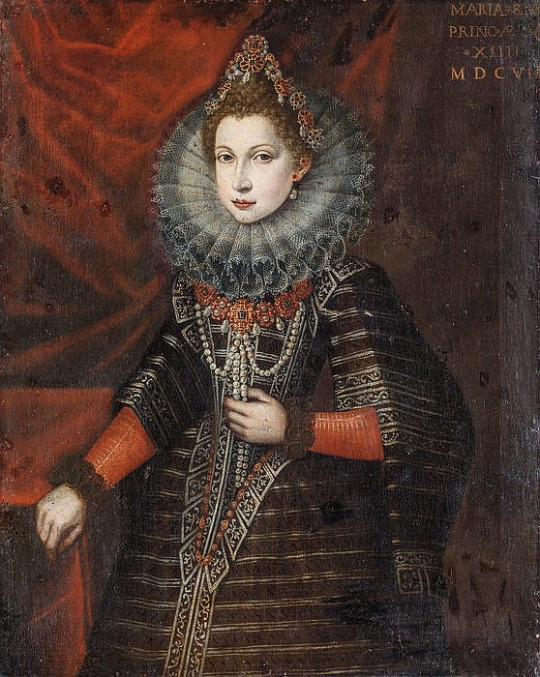
Portrait of Maria Apollonia of Savoy, the 7th of 10 children born to Charles Emmanuel I and Catalina Micaela of Spain. She and her younger sister, Francesca Caterina, would both become nuns.
#Maria Apollonia of savoy#Charles Emmanuel I#house of savoy#Catalina Micaela of Spain#catherine michelle of spain#16th century#long live the queue
21 notes
·
View notes
Text
I drew all 26 of Napoleon's marshals


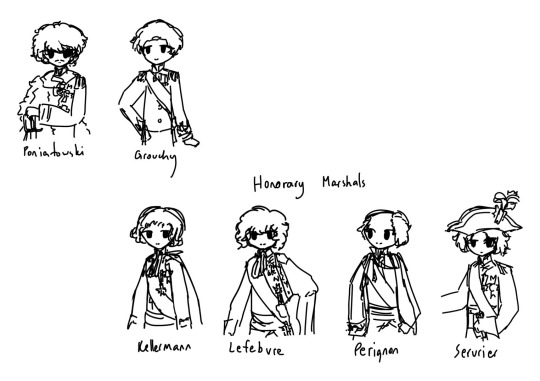
#napoleonic wars#napoleon’s marshals#do i just tag all of them#Louis-Alexandre Berthier#Joachim Murat#Bon-Adrien Jeannot de Moncey#Jean-Baptiste Jourdan#André Masséna#Pierre Augereau#Jean-Baptiste Bernadotte#Guillaume Brune#Jean-de-Dieu Soult#Jean Lannes#Édouard Mortier#Michel Ney#Louis-Nicolas Davout#Jean-Baptiste Bessières#Claude Victor-Perrin#Jacques MacDonald#Nicolas Charles Oudinot#Auguste de Marmont#Louis-Gabriel Suchet#Laurent de Gouvion Saint-Cyr#Józef Antoni Poniatowski#Emmanuel de Grouchy#François Christophe de Kellermann#François Joseph Lefebvre#Catherine-Dominique de Pérignon#Jean-Mathieu-Philibert Sérurier
63 notes
·
View notes
Text




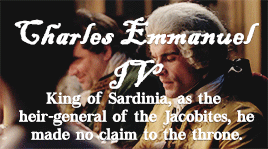
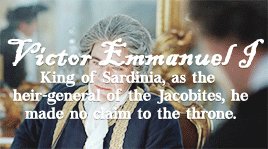


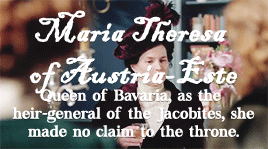

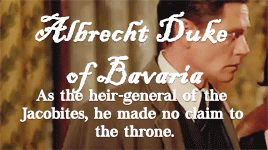

jacobite pretenders/heir-generals of the jacobites
#historyedit#weloveperioddrama#history#perioddramaedit#james ii#james ii and vii#james francis edward stuart#bonnie prince charlie#henry benedict stuart#maria theresa of savoy#charles emmanuel iv#victor emmanuel i#maria theresa of austria este#rupprecht crown prince of bavaria#my gifs#my gifsets
76 notes
·
View notes
Text





King Charles III and Queen Camilla arrive for a State Banquet hosted in their honour at Versailles, Paris, France, 20.09.2023
#queen camilla#king charles lll#emmanuel macron#brigitte macron#Camilla looks stunning#I LOVE the jewels#she looks fab#the cape in the last one is giving me Snape vibes#and I mean that very positive
78 notes
·
View notes
Text
Pick a Novel: Keywords/prominent themes in your life
Pick the novel that draws your attention the most. If you can't decide between two, then look at the 2 readings. This is a general reading, so not everything will apply. Please take what resonates and leave what doesn't behind!
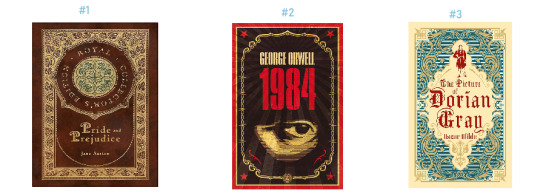
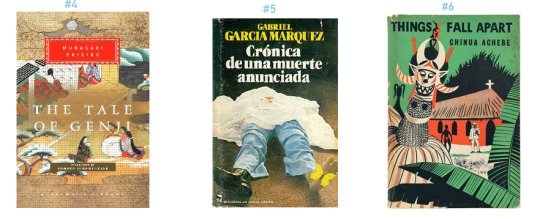
#1
Keywords: love, lust, passion, fun, temperament, cafe, sweet, bicycle, pen, books, music, loyalty, winter, sofa, furniture, thoughts, light, intuition, soulmate, art, obsidian, cake, carbonated water, skincare, socks, cooking
Celebrities/Public Figures: Audrey Hepburn, Min Yoongi, IU, Claude Monet, Angela Merkel, Andrew Carnegie, John Johnson, Mark Zuckerberg, Larry Page, Howard Schultz, Sam Walton, Amancio Ortega, Queen Elizabeth I, Jane Austen, Jennie Kim
Countries: Italy, Canada, South Africa, Thailand, Saudi Arabia, Singapore, Greece, Madagascar, Qatar, Sweden, Zambia, Taiwan, Solomon Islands
Numbers: 11, 1, 5, 9, 80, 888, 6
Brands: Hermes, Tiffany, Apple, Instagram, Taobao, Lamborghini, Deloitte, Microsoft, Chopard, Givenchy, Patek Phillipe, Chloe, Alaia, Kraft,
Kpop songs: Young Forever by BTS, Shine by PENTAGON, Me Gustas Tu by GFRIEND, Run to You by DJ DOC, Love Lee by AKMU, Deja vu by TXT, Back Down by P1Harmony, Love shot by EXO
#2
Keywords: economy, job loss, new opportunities, play, drama, anger, frustration, lost, compass, computers, battery, feet, head, brain, summer, pearl, avocado, junk food, fried chicken, challenge, frugal
Celebrities/Public Figures: Grace Kelly, Billie Eilish, Keanu Reeves, Rosé, Jung Hoseok, Salma Hayek, Pablo Picasso, Princess Diana, Thomas Edison, Sergey Brin, Mary I, William Shakespeare, Lee Nayeon
Countries: New Zealand, USA, Maldives, Indonesia, United Kingdom, Venezuela, Lithuania, Nepal, Portugal, Poland, Lebanon, Mali, Netherlands
Numbers: 4, 99, 101, 33, 13, 14, 0
Brands: Masion Margiela, Amazon, facebook, Shein, PWC, Missoni, Moschino Couture, Toyota, citi bank, Chaumet, Polene, Pizza Hut,
Kpop songs: Love Dive by IVE, Shangri-la by VIXX, Sweety by Clazziquai, I NEED U by BTS, The Chaser by Infinite, Magnetic by ILLIT, My House by 2PM, ICY by ITZY
#3
Keywords: tales, gossip, lies, funny, movies, theatre, cell phone, cool, kpop, magenta, ancient, history, claws, cats, tiger, fall, jealousy, games, aquamarine, lemons, makeup, pencil, groceries
Celebrities/Public Figures: Beyonce, Lady Gaga, Morgan Freeman, Kim Seokjin, Jang Wonyoung, Matt Damon, Napoleon Bonaparte, Shinzo Abe, Steve Jobs, Voltaire, Kim Jisoo,
Countries: Ethiopia, France, Russia, Ireland, Argentina, Afghanistan, Libya, Rwanda, Nigeria, Pakistan, Morocco, Malta, Kazakhstan, Kenya, Iraq,
Numbers: 2, 7, 69, 25, 55, 79, 1182
Brands: Saint Laurent, miumiu, Starbucks, Mercedez-Benz, Nestle, Oracle, Tod's, Bulgari, Rolex, KFC, SUBWAY, Carrefour, Kellog's
Kpop songs: Supernova by aespa, Maestro by seventeen, Not by the moon by GOT7, Alone by Sistar, Hip by MAMAMOO, Good Day by IU, Bite Me by ENHYPEN, Work by ATEEZ, The Feels by TWICE
#4
Keywords: foreign, spicy, peppery, rice, no, objection, resistance, control, storms, thunderstorms, shower, tension, crush, pop, paper, mango, legs, fragrance, emerald, clothing rack, tomatoes, defeat,
Celebrities/Public Figures: Judy Garland, Margot Robbie, G-Dragon, Jeon Jungkook, Pharrell Williams, Emmanuel Macron, Bill Clinton, King Charles, Warren Buffet, Cleopatra, Kim Mingyu
Countries: South Korea, Philippines, Scotland, Spain, Albania, Guatemala, Malaysia, Iran, Romania, Honduras, Georgia, Croatia, Belgium, Czech Republic, Gambia, Guinea
Numbers: 31, 75, 412, 43, 486, 640
Brands: Chanel, Prada, Bentley, Gucci, Samsung, Disney, BMW, Hyundai, cisco, Van Cleefs & Arpels, Dior, Loro Piana, Shake Shack
Kpop songs: Gee by SNSD, If you by BIGBANG, Antifragile by LE SSERAFIM, Up and Down by EXID, OMG by NewJeans, Lion by (G)I-DLE, Hello by TREASURE,
#5
Keywords: death, mystery, mirror, reflection, shadow, black, grey, white, funeral, video, sprint, pool, gym, streets, metro, subway, chocolate, broken, knees, moon, ruby, surgery, teeth, race
Celebrities/Public Figures: Marilyn Monroe, Barack Obama, Kate Winslet, Kim Taehyung, Aamir Khan, Marie Antoinette, Elon Musk, Robert F Kennedy, Jeff Bezos, Richard Branson, Edward VIII, Charles Dickens, Abraham Lincoln, Park Bogum,
Countries: North Korea, China, Vietnam, Brazil, Bangladesh, Cambodia, Germany, India, Israel, Laos, Haiti, Dominican Republic, Congo, Cuba, Egypt, Mongolia
Numbers: 3, 97, 17, 19, 52, 98
Brands: Ralph Lauren, Celine, Ferrari, Huawei, Uber, intel, UPS, Calvin Klein, Piaget, Guerlain, Berluti, Pepsi, Cadbury
Kpop songs: Shut down by Blackpink, Seven by Jeon Jungkook, God's Menu by Stray Kids, Love Love Love by Epik High, Very Nice by SEVENTEEN, Birthday by Jeon Somi, Psycho by Red Velvet,
#6
Keywords: travel, toxic, break away, departure, memory, dreams, truth, unveil, diary, journal, coffee, jacket, shoes, hands, social media, news, competition, autumn, diamonds, electricity, TV, cheat, fashion
Celebrities/Public Figures: Jane Birkin, Kim Jiwon, Gigi Hadid, Charlize Theron, Park Jimin, Salman bin Abdulaziz Al Saud, Maximilien Robespierre, Bill Gates, Queen Elizabeth II, Vladimir Putin, Henry Ford, James Joyce, Lalisa Manobal
Countries: Japan, Australia, Mexico, Iceland, Finland, Eritrea, Ecuador, Costa Rica, Cyprus, Bolivia, Botswana, Bahamas,
Numbers: 8, 646, 152, 37, 49, 22
Brands: Louis Vuitton, Lexus, Tesla, Fendi, Walmart, Nike, Siemens, Google, Cartier, Burberry, Ferragamo, Burger King, Unilever
Kpop songs: ROCKSTAR by LISA, Cherry bomb by NCT 127, Move by Taemin, Dramarama by MONSTA X, Love Scenario by iKON, Get a Guitar by RIIZE, Replay by SHINee, Candy Sugar Pop by ASTRO, Mr. Simple by Super Junior
#psychic readings#love readings#psychic predictions#general readings#psychic#psychic reading#pac#pick a card#pac reading#pick a card reading#pick a pile#pick a picture#pick a photo#psychic reader#psychic readers#free psychic reading#life readings#predictions#intuitive#intuition#intutive reading
226 notes
·
View notes
Text

The Royal Runaway
Author: Tossukka | Artist: daffodilsonaprettystring
Posting on Friday April 4
As the youngest son to the king of a small European country, Castiel had rarely felt free to be himself. After a breakup and his ex-boyfriend outing him to the public, Cas flees to America to seek some peace and quiet from the press. In his new town, he manages to escape from his bodyguards for an afternoon and meets an attractive stranger. The man, Dean, gives him a taste of what it could be like to date as just another regular person. And that’s just the first of the strange turns his life is about to take.
Keep reading for a sneak preview!
“Do they actually still make paper newspapers in the 21st century?” Dean asked. “Why don’t you read your news on the phone like normal people?” “This is grounding,” Sam said, not raising his eyes from his paper. “It’s nice to do things the old fashioned way sometimes. There’s coffee in the pot.” Dean went to get some coffee and made himself a bowl of cereal that he put on the table opposite Sam. Realizing he left his coffee next to the pot, he walked to get it and, on the way, stopped to read over Sam’s shoulder. “Mmm, I love the smell of political opinion pieces in the morning,” Dean said. “How very fascinating.” “That’s rich, coming from someone who probably doesn’t know who the current governor is,” Sam responded. “Hey! I know stuff. The governor is… that guy. With the hair. And glasses I think,” Dean said and took a sip of coffee. “Our governor is a woman,” Sam said, sounding smug, and turned the page of his paper. He probably did say more but Dean had stopped listening as soon as he saw the photo on the page. When he read the headline he sprayed some of the coffee in his mouth right on the paper. “Hey!” Sam said. “I know you don’t like the paper form of news but there’s no need to…” Sam turned to Dean, and Dean’s face must have been something because Sam’s tone turned concerned and he asked what was wrong. “That guy in the photo… it’s the guy who I helped with the car yesterday,” Dean said, not believing his own words. “Who? The journalist?” Sam looked at the photo. “Or… Dean, it couldn’t have been. Shouldn’t he have like… bodyguards with him? A driver? You said his car was a piece of shit?” “Yeah, because it was,” Dean said. “But that’s him.” Him being His Royal Highness, the prince of Fiyora, who was in the picture being interviewed by a local journalist. “You said your guy had a weird name. Cas something. But the prince is called James,” Sam said. “I know,” Dean said, placing his coffee mug on the table and starting to doubt himself in the face of overwhelming evidence. Cas had been wearing jeans and a hoodie, Prince James in the picture was wearing a fashionable tailored jacket and trousers. And yet Dean believed it had to be the same person. “Wait, let me look him up real quick,” Sam said, pulling out his phone and typing something on it to pull up a Wikipedia article. “Here we go. Prince James of Fiyora, the Duke of Seraphim, full name James Castiel Charles Emmanuel…” “Oh fuck,” Dean sat down in his chair and put his face in his hands. “Castiel. He said his name is Castiel.”
Keep reading on Ao3 after Friday April 4 🌲Find more 2025 Pinefest previews here 🌲
#destiel#deancas#destiel fic#deancas fic#destiel art#deancas art#pinefest 2025#pinefest previews 2025#Dean/Cas Pinefest#Human AU#Royalty AU#Strangers to friends to lovers#Tossukka#daffodilsonaprettystring
62 notes
·
View notes
Text
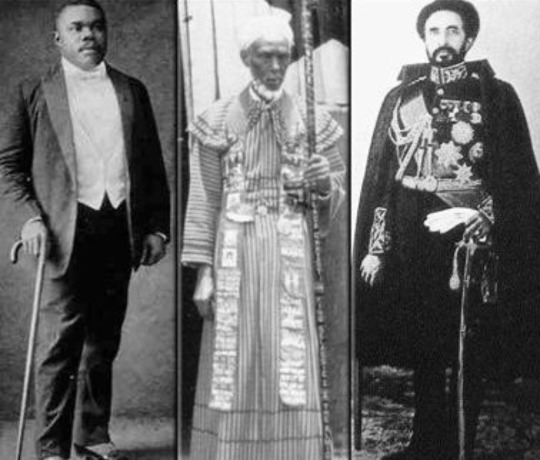
In Rastafari, particularly within the Bobo Ashanti Mansion, the trio of Marcus Garvey, Haile Selassie I, and King Emmanuel Charles Edwards is known as Rastafari Holy Trinity or the Black Christ Trinity. It represents prophet (Garvey), king (Selassie), and priest (Edwards), symbolizing liberation, divinity, and spiritual leadership.
#black people#black#black history#black tumblr#blacktumblr#pan africanism#black conscious#africa#black power#black empowering#marcus garvey#haile selassie#king emmanuel charles edwards#Bobo Ashanti#jah rastafari#rastafari#Black Christ trinity#Rastafari Holy Trinity
36 notes
·
View notes
Text
“This is going to be great television, I’ll tell you that.”
Those may have been the truest words uttered by U.S. President Donald Trump in the course of a dramatic and completely undiplomatic meeting with Ukrainian President Volodymyr Zelensky. Trump knows a thing or two about television. A former reality TV star, he charted his path to power with a keen awareness of how to retain people’s attention. The more shocking, the more outlandish, the more boorish, the more unprecedented—the more ratings would tick up. Trump tracked this obsessively. He was known to dial TV executives willing to take his calls, dishing on the numbers every morning. If the ratings hadn’t inched up, he would try something else. Rinse and repeat. More ratings, more coverage, more attention. Attention must be paid.
The formula worked on the presidential campaign trail starting in 2015, in a country where politicians are forever soliciting attention and cable channels constantly gaming out the next political cycle (fueled, in part, by the sugar high of ratings and political advertising). It worked again in 2024, at least as defined by electoral success, and even as video consumption shifted to smaller screens and bite-sized clips—a transition Trump also seemed to quickly master. But does the shock strategy work as well while you’re in office? What are the metrics of success when you no longer need to win an election?
This past week, Trump pushed the boundaries of press attention—without needing to travel or organize a major rally. On Monday, Thursday, and then Friday, Trump received the leaders of France, the United Kingdom, and Ukraine in the White House, each time making sure a freewheeling discussion was aired out in front of the world’s cameras. British Prime Minister Keir Starmer presenting a letter from King Charles III inviting him for a second state visit? Check. Bonhomie with French President Emmanuel Macron? Check. Telling off Zelensky? Check. Actual accomplishments or diplomatic advances? TBD. Stay tuned for more. Perhaps after the commercial break. Watch this space.
Of all Trump’s televised meetings this week, the one with Zelensky was the most shocking. After CNN played out what is known in TV parlance as the tape turn—the recording, since the pool video didn’t air live—the network’s chief international anchor Christiane Amanpour was shown with her hands holding her face, stunned. “I have never seen anything like this in my life,” she said, still digesting the video. That image mirrored another emerging from the White House, of Ukrainian ambassador Oksana Markarova, who has lobbied for U.S. support in Washington ever since the start of Russia’s 2022 invasion of her country: head in hand, a shake of the forehead as if to ask “is this really happening?”
More ominously, perhaps: “What will this mean for the future of our country?”
OK, as a former TV producer, I now know that this is all enough of a tease. Here’s what happened (you should also read FP’s transcript of the key moments here).
It began as these sorts of things often go. “I want to see if we can get this thing done,” Trump said, of a potential cease-fire and peace deal between Russia and Ukraine. “You want me to be tough? I can be tougher than any human being you’ve ever seen … but you’re never going to get a deal that way.”
Normal, so far. Then U.S. Vice President J.D. Vance chimed in. “For four years, in the United States of America, we had a president who stood up in press conferences and talked tough about Vladimir Putin … We tried the pathway of Joe Biden, of thumping our chest and pretending that the president of the United States’ words mattered more than the president of the United States’ actions.” Zelensky asked to respond. Speaking in English—he normally uses an interpreter—he described how Russian President Vladimir Putin had occupied various parts of Ukraine since 2014. “We had a lot of conversations with him … he broke the cease-fire. He killed our people. … What kind of diplomacy, J.D., are you speaking about?”
This didn’t go down well.
“I’m talking about the kind of diplomacy that’s going to end the destruction of your country. Mr. President, with respect, I think it’s disrespectful for you to come to the Oval Office and try to litigate this in front of the American media,” Vance said.
Zelensky upped the ante. “Have you ever been to Ukraine to see what problems we have? Come once,” he said. And later, of Putin’s aggression taking place far from American shores, he said: “You have a nice ocean and don’t feel [the problems] now. But you will feel it in the future.”
Around this point, it all went steeply downhill. Trump jumped back in. “Don’t tell us what we’re going to feel,” he said. “We’re trying to solve a problem. You’re in no position to dictate what we’re going to feel. We’re going to feel very good. We’re going to feel very good and very strong.”
Trump then began to raise his voice. “You’re right now not in a very good position. You’ve allowed yourself to be in a very bad position. You don’t have the cards right now with us. You’re gambling with the lives of millions of people. You’re gambling with World War III. You’re gambling with World War III, and what you’re doing is very disrespectful to this country that’s backed you far more than a lot of people say they should have.”
The clips will go viral. The transcript will be pored over. Even Trump, ever aware of the drama of the moment, took to his Truth Social account and wrote, “We had a very meaningful meeting in the White House Today. Much was learned that could never be understood without conversation under fire and pressure. It’s amazing what comes out through emotion. … [Zelensky] disrespected the United States of America in its cherished Oval Office. He can come back when he is ready for Peace.”
And so it was that a scheduled second press conference, after lunch, never came to be. Stay tuned for the next visit.
World leaders have seen this show before. Many of them understand Trump’s love for the cameras, his zero-sum need to win every deal, his love for pomp and circumstance. Starmer, prepped for exactly this moment by his TV-savvy new ambassador in Washington, Peter Mandelson, came armed with flattery, flowery words, and an invitation for a state visit, signed by King Charles III. When Trump proudly displayed it for the cameras, Starmer was clever enough to point out that Trump hadn’t yet accepted—at which point he did, happily playing up the moment for the cameras.
Zelensky’s fatal flaw, in his now viral exchange with Vance and Trump, was that he dared to upend the script, which even drew Vance’s ire for “trying to litigate this in front of the American media.” (Ignore for a minute that it was the White House that had invited the media in the first place.) Zelensky forgot that Trump wanted to be treated not like a fellow leader, but as an all-powerful monarch, for the benefit of the cameras. “Have you ever said thank you?” Vance said at one point. For a former comedian used to the cameras, it was strange that Zelensky got the script wrong.
13 notes
·
View notes
Text
Friends, enemies, comrades, Jacobins, Monarchist, Bonapartists, gather round. We have an important announcement:
The continent is beset with war. A tenacious general from Corsica has ignited conflict from Madrid to Moscow and made ancient dynasties tremble. Depending on your particular political leanings, this is either the triumph of a great man out of the chaos of The Terror, a betrayal of the values of the French Revolution, or the rule of the greatest upstart tyrant since Caesar.
But, our grand tournament is here to ask the most important question: Now that the flower of European nobility is arrayed on the battlefield in the sexiest uniforms that European history has yet produced (or indeed, may ever produce), who is the most fuckable?
The bracket is here: full bracket and just quadrant I
Want to nominate someone from the Western Hemisphere who was involved in the ever so sexy dismantling of the Spanish empire? (or the Portuguese or French American colonies as well) You can do it here
The People have created this list of nominees:
France:
Jean Lannes
Josephine de Beauharnais
Thérésa Tallien
Jean-Andoche Junot
Joseph Fouché
Charles Maurice de Talleyrand
Joachim Murat
Michel Ney
Jean-Baptiste Bernadotte (Charles XIV of Sweden)
Louis-Francois Lejeune
Pierre Jacques Étienne Cambrinne
Napoleon I
Marshal Louis-Gabriel Suchet
Jacques de Trobriand
Jean de dieu soult.
François-Étienne-Christophe Kellermann
17.Louis Davout
Pauline Bonaparte, Duchess of Guastalla
Eugène de Beauharnais
Jean-Baptiste Bessières
Antoine-Jean Gros
Jérôme Bonaparte
Andrea Masséna
Antoine Charles Louis de Lasalle
Germaine de Staël
Thomas-Alexandre Dumas
René de Traviere (The Purple Mask)
Claude Victor Perrin
Laurent de Gouvion Saint-Cyr
François Joseph Lefebvre
Major Andre Cotard (Hornblower Series)
Edouard Mortier
Hippolyte Charles
Nicolas Charles Oudinot
Emmanuel de Grouchy
Pierre-Charles Villeneuve
Géraud Duroc
Georges Pontmercy (Les Mis)
Auguste Frédéric Louis Viesse de Marmont
Juliette Récamier
Bon-Adrien Jeannot de Moncey
Louis-Alexandre Berthier
Étienne Jacques-Joseph-Alexandre Macdonald
Jean-Mathieu-Philibert Sérurier
Catherine Dominique de Pérignon
Guillaume Marie-Anne Brune
Jean-Baptiste Jourdan
Charles-Pierre Augereau
Auguste François-Marie de Colbert-Chabanais
England:
Richard Sharpe (The Sharpe Series)
Tom Pullings (Master and Commander)
Arthur Wellesley, 1st Duke of Wellington
Jonathan Strange (Jonathan Strange & Mr. Norrell)
Captain Jack Aubrey (Aubrey/Maturin books)
Horatio Hornblower (the Hornblower Books)
William Laurence (The Temeraire Series)
Henry Paget, 1st Marquess of Anglesey
Beau Brummell
Emma, Lady Hamilton
Benjamin Bathurst
Horatio Nelson
Admiral Edward Pellew
Sir Philip Bowes Vere Broke
Sidney Smith
Percy Smythe, 6th Viscount Strangford
George IV
Capt. Anthony Trumbull (The Pride and the Passion)
Barbara Childe (An Infamous Army)
Doctor Maturin (Aubrey/Maturin books)
William Pitt the Younger
Robert Stewart, 2nd Marquess of Londonderry (Lord Castlereagh)
George Canning
Scotland:
Thomas Cochrane
Colquhoun Grant
Ireland:
Arthur O'Connor
Thomas Russell
Robert Emmet
Austria:
Klemens von Metternich
Friedrich Bianchi, Duke of Casalanza
Franz I/II
Archduke Karl
Marie Louise
Franz Grillparzer
Wilhelmine von Biron
Poland:
Wincenty Krasiński
Józef Antoni Poniatowski
Józef Zajączek
Maria Walewska
Władysław Franciszek Jabłonowski
Adam Jerzy Czartoryski
Antoni Amilkar Kosiński
Zofia Czartoryska-Zamoyska
Stanislaw Kurcyusz
Russia:
Alexander I Pavlovich
Alexander Andreevich Durov
Prince Andrei (War and Peace)
Pyotr Bagration
Mikhail Miloradovich
Levin August von Bennigsen
Pavel Stroganov
Empress Elizabeth Alexeievna
Karl Wilhelm von Toll
Dmitri Kuruta
Alexander Alexeevich Tuchkov
Barclay de Tolly
Fyodor Grigorevich Gogel
Ekaterina Pavlovna Bagration
Ippolit Kuragin (War and Peace)
Prussia:
Louise von Mecklenburg-Strelitz
Gebard von Blücher
Carl von Clausewitz
Frederick William III
Gerhard von Scharnhorst
Louis Ferdinand of Prussia
Friederike of Mecklenburg-Strelitz
Alexander von Humboldt
Dorothea von Biron
The Netherlands:
Ida St Elme
Wiliam, Prince of Orange
The Papal States:
Pius VII
Portugal:
João Severiano Maciel da Costa
Spain:
Juan Martín Díez
José de Palafox
Inês Bilbatua (Goya's Ghosts)
Haiti:
Alexandre Pétion
Sardinia:
Vittorio Emanuele I
Lombardy:
Alessandro Manzoni
Denmark:
Frederik VI
Sweden:
Gustav IV Adolph
64 notes
·
View notes
Text
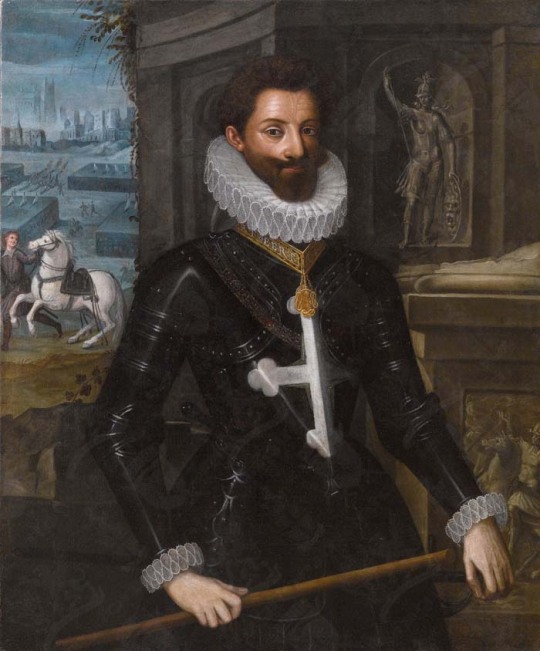



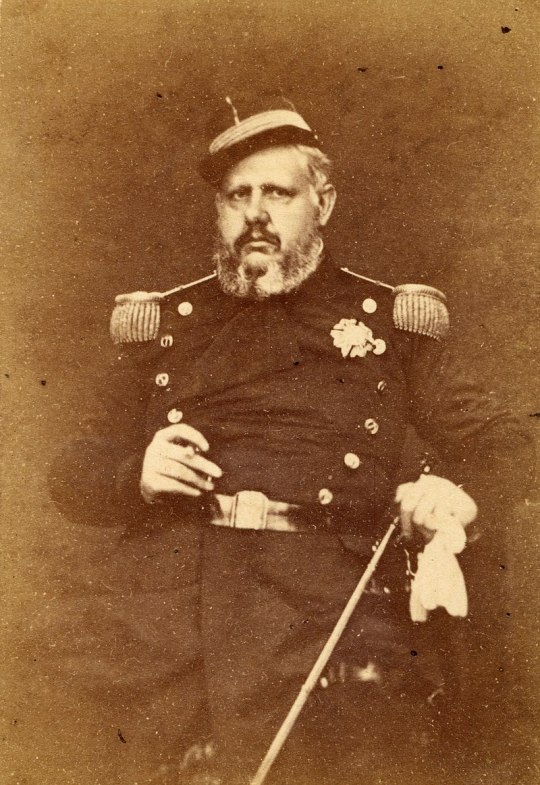
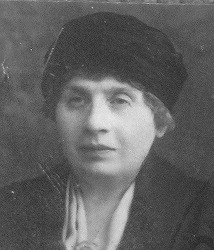
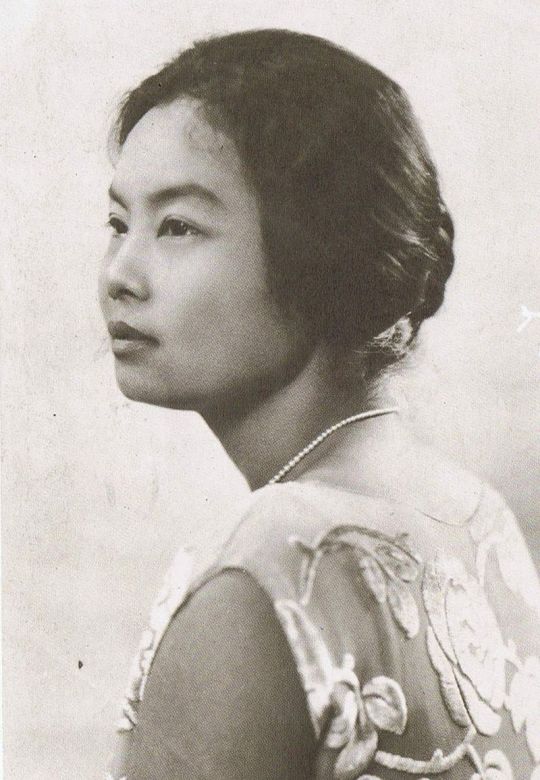

Royal Birthdays for today, January 12th:
Charles Emmanuel I, Duke of Savoy, 1562
Ferdinand, Prince of Brunswick-Lüneburg, 1721
Maria Carolina, Archduchess of Austria, 1740
Ferdinand I, King of the Two Sicilies, 1751
Ferdinand II, King of the Two Sicilies, 1810
Zekiye Sultan, Ottoman Princess, 1872
Hemvadi, Princess of Thailand, 1892
Gustav, Hereditary Prince of Sayn-Wittgenstein-Berleburg, 1969
#Zekiye Sultan#maria carolina of austria#ferdinand i#ferdinand ii#ferdinand iv#charles emmanuel I#prince ferdinand#prince gustav#princess Hemvadi#royal birthdays#long live the queue
6 notes
·
View notes
Text
I remember seeing a post by @/fatherfigurefusion that was something like ''What if DRDT had Japanese VAs?'' and so me and some friends (@areinageishii @doodlesacevid @sorastar6 @mizumi77) decided to do the same thing just than with Brazilian voice actors! What if DRDT had Brazilians VAs?
=== Teruko- Natali Pazete Xander- Caio Guarnieri Charles- Sérgio Cantu Ace- Adrian Tatini or Charles Emmanuel Arei- Pamella Rodrigues Rose- Mariana Torres Hu- Patt Souza Eden- Bianca Alencar Levi- William Vianna Arturo- Bruno Casemiro Min- Jessica Cardia David- Fabrício Vila Verde Veronika- Lia Mello J- Luísa Horta Whit- Lipe Volpato Nico- Lucas Almeida --- Monotv- Agatha Paulita
Again, credits to @/fatherfigurefusion
#drdt#danganronpa despair time#despair time#veronika grebenshchikova#arturo giles#ace markey#david chiem#teruko tawaki#arei nageishi#whit young#charles cuevas#hu jing#levi fontana#rose lacroix#xander matthews#eden tobisa#j rosales#j moreno#nico hakobyan#min jeung
27 notes
·
View notes
Text

Royal Outtakes
From their visit in Saarburg and others.
The goats may love the Royal Family but that doesn't seem to count for Kumo, Kiri's sheep ^^'

Or Jack's Little Goat. He didn't like that the Princess wanted to keep him from running after the Queen ^^'

When we arrived, Francine (Jeb's grandmother and one of the three witches) came running along in fear ö.Ö' I count that as a bad omen. That's two now. (First was Sai seeing Ji Ho's dead mother the other day...)


And of course it had been Vlad who was doing the stunt for the screenshot (woohooing the Princess ^^'). The way she looks at him <3 Maybe she's happy that here, ingame, he still has his chest hair :3

We spotted adult Vlad at the pond, he looks a bit confused :3

And Ji Ho would maybe be happy to know that Kiyoshi came over, only to see him ^^' (Ji Ho had been crazy for Kiyoshi since the beginning :3 )

When I took the screenshots, I glitched through the ground. So this is Willow Creek from far below ö.ö

And that's my favourite: Emmanuel Macron touching the hand of King Charles at the event of the 80th anniversary of the d day landings. Such a meaningful gesture!
The King: "Emmanuel! What are you doing? Not in front of all the people!" Emmanuel: "I want everyone to know that you are the King of my heart!" The King: "Oh Emmanuel!" Camilla: "Oh no..." Brigitte: "That was about time! I've been shipping them for ever!"

Valerian: 'Lunatic, do you want me to show you my new magic trick? I can make my wand vanish!' Lunatic blushes.

#the one game#underwater love#therapy game#the one#lunatic#valerian#noxeema jackson#woo ji ho#the castle#the white lily#kiyoshi ito#willow creek#henford on bagley#simblr#ts4#sims 4#sims 4 vanilla#sims 4 story#vladimir tepesz#tomarang#goldshire
30 notes
·
View notes
Text
I realize this is me being persnickety, but:
There seems to be a convention in English-language history to translate the names of most European monarchs before about the mid-19th century into English from their native language. So for instance, the Holy Roman Emperor Charles V instead of the Holy Roman Emperor Karl V.
To a certain extent this makes sense, particularly in that case since he was also King Charles/Carlos I of Spain and you sort of need to settle on one name to call him. There's also the fact that his first and most natural language was French, and his coins would have called him Carolus.
Then in about the mid-19th century, you start seeing more and more monarch's names translated by convention (perhaps because of the rise of nationalism?). So for example, Wilhelm II is far more common than William II in English-language historiography, and Franz Josef is much more common for the Emperor of Austria than Francis Joseph. But - and here's where I get frustrated - his contemporary the Tsar of Russia is almost always called Nicholas II in English-language history, not Nikolai II! The contemporary King of Italy is usually called Victor Emmanuel III instead of Vittorio Emanuele, while his immediate predecessor and successor as King of Italy always their names translated as Umberto I/II instead of the English Humbert I/II. So the standard literally changes for the same country from one ruler to the next for no apparent reason other than "it's convention."
As for non-monarchs, their names are almost always given in their native language in modern histories. It's just monarchs that have this weird and very inconsistent double standard in how English-language historians write their names. I realize this isn't that serious an issue and again I'm just being persnickety, but I wish historians would pick a standard and stick to it
5 notes
·
View notes
Note
you can get out of your popularity logic! Charles is a head of state, popular or not, the other heads of state don't care, otherwise Emmanuel Macron wouldn't be walking around everywhere with this logic.
I agree but the popularity in the UK is important. Currently all the top royals have decent popularity levels but if this plummets then anything is possible. The UK becoming a republic isn't an impossibility. People take for granted that William will become king but shocking things have happened before and they can happen again. The establishment may decide William should abdicate and change the laws to allow him to remove his line from the monarchy. If Harry became king it would be to the UK he has to prove himself, other heads of states don't care who the monarch is. It's even possible that Charles' whole line is removed, we could see a future with Queen Beatrice. Some might laugh and think this is crazy but events could lead to such a thing happening. Granted Harry becoming king maybe more likely, he would definitely want it and he would quickly change his mind about the BRF being bad and continue things like Charles is.
The establishment will want someone who will continue things in a smooth fashion, change is fine but slowly and if William refuses there will be those behind the scenes who decide he has to go.
I wouldn't be surprised if William doesn't become king.
personally, I always saw the royal machine as the LVMH company. I agree with you a slow change like LVMH. For Beatrice, it was 10 years ago when I read a medium who saw her as a queen and that it was possible
11 notes
·
View notes
Text
L' « extrême centre » est une notion forgée par Pierre Serna, professeur à l’université Paris-I Panthéon Sorbonne et membre de l’Institut d’histoire de la Révolution française. Elle vise à décrire les gouvernements qui apparaissent après des périodes politiques marquées par des violences ou des instabilités fortes, qui se revendiquent de la modération et souhaitent se débarrasser du clivage gauche-droite. Napoléon Bonaparte dira par exemple en 1799, après le coup d’État du 18 Brumaire : « Ni talon rouge, ni bonnet rouge, je suis national. » D’après Pierre Serna, auteur de L’extrême centre ou le poison français : 1789-2019 (Champ Vallon, 2019), cette politique survient notamment en France en 1793, en 1799, en 1815, en 1851 ou encore en 1958, avec le retour au pouvoir de Charles de Gaulle, qui se présente alors comme au-dessus des partis. Depuis 2017, Emmanuel Macron « coche toutes les cases de l’extrême centre », assure l’historien. Pour Les Jours, Pierre Serna analyse à l’aune de cette notion la naissance du macronisme, son héritage et ses dérives. Entretien.
Qu’est-ce que l’extrême centre ?
C’est un concept historique qui m’est apparu parce que je n’arrivais pas à nommer les événements historiques qui se sont produits entre 1790 et 1815, surtout durant Thermidor, le Directoire et le Consulat. L’extrême centre est la réunion de plusieurs phénomènes. Lors de cette période, l’ensemble de la classe politique s’était beaucoup dédit et avait prêté moult serments à tous les régimes, de 1789 à 1815. Il y avait donc toute une série de personnages qu’on peut appeler « girouettes ». Ensuite, dans les périodes suivant des moments d’intenses violences politiques, ce groupe revendiquait la rhétorique de la modération pour revenir au calme et à une forme de réconciliation, de compromis. À partir de là, ces gens se légitimaient eux-mêmes dans leur changement d’avis, mettant leur positionnement politique au-dessus de leurs principes. Pour justifier cela, il fallait qu’ils se situent dans un échiquier politique déjà clairement défini depuis la Constituante : au centre. Ils vont alors comprendre que la conquête du pouvoir exécutif est ce qui compte le plus. Et bien souvent, leur usage du pouvoir exécutif va être particulièrement dur, particulièrement répressif et sévère, tant du point de vue politique que militaire. C’est donc cette pensée oxymorique qui m’a donné envie de donner un titre à cette mouvance jamais nommée.
Ces personnes qui tiennent le pouvoir ne le lâchent pas, au nom du fait que les autres sont des extrêmes. Mais ce sont eux qui les qualifient d’« extrêmes ». C’est donc un centre qui a une radicalité de par son absence idéologique et par sa capacité à utiliser les forces de répression de l’État qui sont à sa disposition.
[reste de l'article sous le trait parce que c'est long - mais très intéressant ! ]
En quoi Emmanuel Macron en est-il un représentant ?
De 2017 à la dissolution de 2024, Emmanuel Macron, dans sa version la plus « pure », coche toutes les cases de l’extrême centre. D’abord, il est passé de la gauche jusqu’à une politique au moins de centre droit, voire délibérément de droite. Emmanuel Macron est donc une figure de girouette et pousse les autres à le devenir : que ce soit les membres du Parti socialiste ou des Républicains qu’il entraîne avec lui. Il pousse donc à un « girouettisme » de masse qui déstabilise tout l’équilibre politique existant.
Deuxièmement, il se positionne comme quelqu’un qui n’est pas dans la rhétorique de l’extrême ni dans l’idéologie, avec un discours conciliant. Autre exemple, plus récent : alors qu’il a mis un désordre effroyable dans les institutions avec la dissolution, il demande une trêve olympique. Il appelle donc régulièrement à des formes de modération parce qu’il en a besoin pour qualifier ses deux adversaires principaux. Des adversaires qu’il a d’ailleurs contraints à se radicaliser parce qu’il prenait de plus en plus de place au centre.
Troisième élément, enfin : il a fait preuve d’une surutilisation, documentée et dénoncée par des instances internationales, des forces policières, voire des adjuvants militaires, pour maintenir l’ordre lors des moments de contestation et de désapprobation de sa politique. On coche donc les trois éléments structurants de l’extrême centre, dont il est une figure en continuité avec l’histoire de France.
L’extrême centre a donc toujours existé. Emmanuel Macron s’est pourtant présenté comme en rupture avec « l’ancien monde »…
Il est parfaitement dans la continuité d’une politique qui correspond à un des cadres évidents de la politique française née pendant la Révolution. Cela pourrait être irritant pour lui, parce que là où il se veut un homme moderne, il est en fait l’incarnation d’une très vieille recette thermidorienne.
Vous dites qu’Emmanuel Macron contraint ses adversaires à se radicaliser. C’est donc lui qui provoque la radicalité de la gauche et de l’extrême droite ?
Pas exactement. La gauche radicale et l’extrême droite sont évidemment antécédentes à Emmanuel Macron. Dans le même temps, les partis de droite et de gauche républicains étaient eux aussi antécédents et avaient la main sur l’échiquier politique de façon majoritaire. Mais il faut qu’il y ait une crise de ces forces traditionnelles pour qu’un homme se plaçant au-dessus des partis sorte de l’anonymat, s’il en a la force, le charisme et les soutiens financiers. Dès lors, à partir du moment où les forces traditionnelles sont plus faibles et que lui occupe un centre de plus en plus important, les forces radicales, de droite et de gauche, doivent « surexprimer » leurs volontés de passer par une conquête du pouvoir législatif pour exister face à celui qui a le pouvoir exécutif. On assiste donc à une radicalisation de ce discours aux extrêmes de façon mécanique. Ainsi, ces radicalités préexistent à l’extrême centre, mais sont encore plus fortes lorsque celui-ci est présent dans la vie politique française.
Le pouvoir exécutif est donc l’objectif de l’extrême centre, au détriment du législatif. Emmanuel Macron a-t-il donc quitté l’extrême centre en prononçant la dissolution de l’Assemblée nationale qui remet, de facto, le Parlement au centre du jeu politique ?
On se trouve dans une confusion intégrale. Emmanuel Macron est désormais un avatar d’extrême centre parce qu’il n’a plus la possibilité de gouverner comme il le souhaiterait. La décision de dissoudre l’Assemblée nationale un soir d’élection où il y a eu un raz-de-marée de l’extrême droite et où moins d’un Français sur deux a voté est choquante, en ce sens qu’elle crée un choc historique (lire l’épisode 1, « Macron, maboul de cristal »). Soit le Président est prêt à gouverner avec l’extrême droite mais il ne le dit pas, soit il envisage une possibilité d’alliance entre son parti et la droite. Les deux ont échoué. Il n’est donc plus dans une figure d’extrême centre, mais bien dans une situation particulièrement délicate : tant qu’il ne peut pas gouverner comme il le désire, c’est-à-dire imposer par l’exécutif quelque chose au législatif, il ne nomme pas de Premier ministre. C’est pourtant à lui de le nommer et de faire appel à la force politique qui est majoritaire, fût-elle relative à l’Assemblée, pour lui demander de gouverner. Il y a là un abus d’autorité et des moyens institutionnels et constitutionnels que lui confère l’hyperprésidentialité de la Ve République (lire l’épisode 42, « “Nous risquons d’entrer dans une zone de turbulences” »).
L’extrême centre n’est-il pas voué à disparaître avec l’impossibilité qu’a Emmanuel Macron de gouverner ?
L’extrême centre n’est jamais appelé à durer. En politique, à droite ou à gauche, il y a des invariants politiques, des marqueurs idéologiques. Le seul invariant de l’extrême centre, lui, est la crise politique qui l’a fait naître, non l’idéologie. Il y a donc deux moyens de « terminer » l’extrême centre : soit aller vers une droite autoritaire, soit aller vers une recomposition totale du paysage politique. Et là, il faut un événement qui dépasse notre quotidien. Concrètement, soit la France suivra le modèle d’une mondialisation brune, soit il y aura un événement dramatique, comme un conflit extérieur qui pourrait changer la donne politique et sociale, comme on l’a vu après 1918 ou 1944. Je ne nous le souhaite pas, mais je constate qu’avec mes outils d’historien je ne peux pas dire quelque chose d’autre.
Quel pourrait-être l’héritage d’Emmanuel Macron ?
À mon avis, il laissera un héritage très fort. D’abord parce que les périodes d’extrême centre ne sont jamais anodines. Elles sont liées généralement à une personne qui est capable d’incarner une désidéologisation. Il laissera donc un héritage fort qui exigera une recomposition en fonction de ce qu’il a été. Celui-ci me semble peu commenté. Il apparaît clair, quand on lit son programme Révolution (XO, 2016) pour 2017, qu’il veut transformer la France à la manière d’un État américain. C’est-à-dire défaire et déconstruire totalement la puissance de l’État social, sortir complètement de ce qui a été une des particularités fortes de la France : un État keynésien et protecteur, à la pointe des avancées sociales et sociétales, capable d’intégrer des populations immigrées. Je pense que la déconstruction de l’État et des services publics, la volonté de faire de toute une jeunesse des autoentrepreneurs, le jeu d’un libéralisme total et la politique sociétale, qui, malgré une rhétorique de façade, renvoie à un rétrécissement et un resserrement de chacun sur soi à la condition d’une hypersécurité, nous conduisent à cela.
Que penser du refus de nommer à Matignon Lucie Castets, pourtant désignée par le Nouveau Front populaire ?
Le Président abuse de ses prérogatives institutionnelles. Il fut un temps, lors de la crise de mai 1877, quand naissait la IIIe République, où le conflit entre le Parlement et le Président se solda par un renforcement du pouvoir législatif. Dès lors, le Président fut obligé légitimement de se « soumettre ou se démettre » une fois que le suffrage universel avait parlé. Aujourd’hui, Emmanuel Macron refuse cette règle républicaine en refusant de nommer une personne, en l’occurrence Lucie Castets, grande servitrice de l’État et des services publics, dont il redoute par-dessus tout la probité et la cohérence. Il semble que le Président ajoute de la confusion à la confusion en s’enfermant dans une forteresse vide, l’Élysée, au lieu d’accepter démocratiquement sa défaite.
#upthebaguette#article copié en entier car réservé aux abonnés#(je tiens à préciser que je suis pas abonné.e à mille trucs j'ai accès à ces articles via ma fac)#french#en français#emmanuel macron#french side of tumblr#bee tries to talk#france#histoire
11 notes
·
View notes
Note
Hello! Since you're tumblr's Marie Sophie expert, I was wondering if you've read Lorraine Kaltenbach's Le Secret de la reine soldat: L'extraordinaire soeur de Sissi and in case you have, if you recommend it. It focuses on Marie Sophie's supposed illegitimate daughter; personally I find this story hard to believe and iirc so do you, but Kaltenbach apparently visited several archives around Europe to do her research, so maybe she did find something new.
Hello! Ughh that book. I have a confession to make: years ago I started reading it because well, it's about the alleged illegitimate daughter, if the author really found something about it then it's worth reading it. But I couldn't finish it because it was so badly researched it made me loose all my patience. Kaltenbach is not a historian and it shows:
She dedicates long parragraphs to describe what was she doing and how was she feeling while "researching".
Most of her sources are just newspapers. I'm not against citing newspapers by any means but the way she did Is Not It. With no context given and taken 100% at face value.
But what made me loose it is when she finally reached to the the alleged affair and I realized her main source for it was... Marie Larisch's 1930s books. I kid you not. All that "brand new information" and "uncovering secrets" talk and she was literally just quoting Larisch's gossips as literally everyone else who ever approached the subject.
At that point I gave up and went straight to the part of the alleged daughter, Daisy de Lavaysse. Here's what I'll say on Kaltenbach's defense: this girl seems to have actually existed. She (allegedly) found her death certificate in Paris, the act of recognition by her father, and her baptism certificate in Bavaria. Now she doesn't actually show any of these documents on her book, however someone on Geneanet uploaded this picture on Daisy's page:

This is the supposed death certificate. No need to decipher the writing, this is what it says, quoted by Kaltenbach:
Lavaÿsse-Châteaubourg. Acte n° 39. L'an mille huit cent quatre-vingt- six, le 7 janvier à onze heures du matin, acte de décès de Marie Louise Élisabeth Mathilde Henriette de Lavaÿsse-Châteaubourg, âgée de vingt-deux ans et dix mois, sans profession, née à Munich (Bavière), décédée en son domicile rue des Mathurins, nº 47, le six janvier courant à neuf heures du matin, fille de Charles Felix Emmanuel de Lavaÿsse-Châteaubourg, décédé, et de mère non dénommée, célibataire. Dressé vérification faite du décès par nous, Jérémie Kastler, adjoint au maire, officier de l'état civil du 8e arrondissement de Paris, chevalier de la Légion d'honneur, officier d'Académie, sur la déclaration faite de Georges Adrien Sol de Marquein, âgé de quarante-deux ans, propriétaire, demeurant à Paris, rue de Lisbonne, n° 49, ami de la défunte; et de Henry de Gineste-Najac, âgé de quarante-sept ans, propriétaire, demeurant à Paris, avenue d'Antin, nº 18, ami de la famille, qui ont signé avec nous après lecture.
Translation:
Lavaÿsse-Châteaubourg. Act No. 39. In the year one thousand eight hundred and eighty-six, on January 7 at eleven o'clock in the morning, death certificate of Marie Louise Élisabeth Mathilde Henriette de Lavaÿsse-Châteaubourg, aged twenty-two years and ten months, without profession, born in Munich (Bavaria), died at her home rue des Mathurins, no. 47, on the current January 6 at nine o'clock in the morning, daughter of Charles Felix Emmanuel de Lavaÿsse-Châteaubourg, deceased, and of an unnamed mother, unmarried. Cerification of the death made by us, Jérémie Kastler, deputy mayor, civil registrar of the 8th arrondissement of Paris, knight of the Legion of Honor, officer of the Academy, on the declaration made by Georges Adrien Sol de Marquein, aged forty-two, owner, residing in Paris, rue de Lisbonne, n° 49, friend of the deceased; and Henry de Gineste-Najac, aged forty-seven, owner, residing in Paris, avenue d'Antin, n° 18, friend of the family, who signed with us after reading.
Let's assume the certificate is legitimate. Why didn't she include it on her book? Why the only picture of it is in a genealogy website and seems taken almost in a hurry?
The strongest evidence Kaltenbach does provide in her book are these two alleged pictures of Daisy she claims were on her grandmother's possesion:


Which she puts next to this picture published by Marie Larisch (left) in one of her books, with a girl that allegedly was Daisy (right):

And I'll give her this: these two pictures do seem to be from the same person.


I'm going to be nice and assume that Kaltenbach indeed found all the evidence she claims she did (because again, she does not provide any of the documents that would actually support her claims). What did she found out? That a distant relative of her had an illegitimate daughter born in Bavaria in 1863. That's it. Everything else is pure speculation. Nothing she provides proves that Marie was Daisy's mother. Absolutely nothing. She just speculates for dozens of pages, most of the time making up a story that fits nicely into what she already believed even before starting her research.
Maybe the author was genuinely onto something, perhaps Daisy was an illegitimate daughter of a member of the House of Wittelsbach. Perhaps she was Marie's daughter after all! But she clearly had no idea on how to properly investigate the subject, and because of that any sort of credibility her evidence could have became damaged. She should've delegated the research to a real historian and written a novel instead.
#in order to answer this ask i skimmed through some chapters again and came across a part in which kaltenbach openly admits that#she postponed going through her family papers for weeks because she felt lazy jfjkg this was when she had already started her ''research''!#anyway perhaps one one day i'll read this book fully for completionist purposes#asks#queen marie sophie of the two sicilies#author: lorraine kaltenbach#Le secret de la reine soldat: L'extraordinaire soeur de Sissi
5 notes
·
View notes